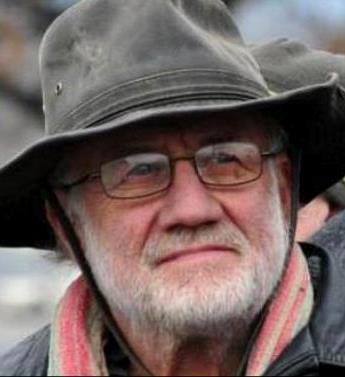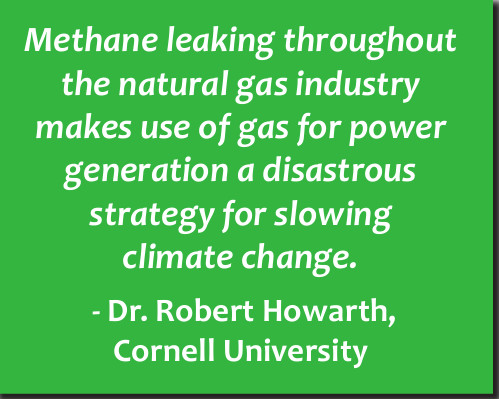 In March 2016, we held three public events on the climate and economic impacts of a massive expansion of natural gas by the nation’s largest electric utility, Duke Energy. The events were held in Durham, Chapel Hill and Asheville and were co-sponsored by the Duke University Environmental Law and Policy Clinic, The Climate Times, the Alliance for Energy Democracy and the Warren Wilson College Environmental and Social Justice Crew.
In March 2016, we held three public events on the climate and economic impacts of a massive expansion of natural gas by the nation’s largest electric utility, Duke Energy. The events were held in Durham, Chapel Hill and Asheville and were co-sponsored by the Duke University Environmental Law and Policy Clinic, The Climate Times, the Alliance for Energy Democracy and the Warren Wilson College Environmental and Social Justice Crew.
Learn more about how we’re working to stop Duke’s fracked gas expansion.
Below are bios of the technical experts and civic leaders who took part.
Videos, photos and PowerPoints from the events:
- See photos from the event.
- Watch the forum at the Friday Center (1 hour 43 minutes)
(Bob Howarth is at 13:00, David Hughes at 34:00, Bill Powers at 55:00, Rev. Rodney Sadler at 1:20:10 and Connie Leeper at 1:33:35) - Watch the press conference held before the forum.
- See the PowerPoints presented by our 3 technical experts: Dr. Robert Howarth, David Hughes and Bill Powers.
- See a 4-minute video message from Geologist David Hughes on the “Myths of US Shale Gas Supplies.”
- Best summary: the 3-minute video below of Cornell University’s Dr. Robert Howarth summarizing the importance of stopping Duke Energy’s gas expansion. Howarth, a leading expert on methane emissions as a driver of climate change, describes why a massive transition to natural gas by Duke Energy and other electric utilities is a disastrous strategy for the climate.
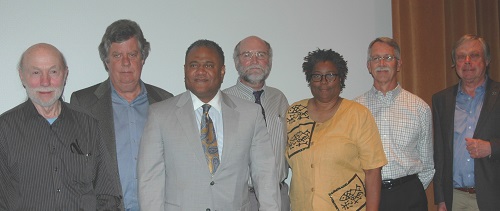
L to R: Harvard Ayers of The Climate Times, David Hughes, Rev. Dr. Rodney S. Sadler, Jr., Jim Warren and Connie Leeper of NC WARN, Bill Powers and Robert Howarth
Media
WUNC radio’s The State of Things, March 23, 2016— One of our technical experts, Dr. Robert Howarth of Cornell University, talks about the climate threat of methane leakage from natural gas operations
Background
Duke Energy is the nation’s worst-polluting utility, and it’s planning a giant expansion of up to 15 large fracking gas power plants, not to mention pipelines and mergers. This would cause electricity rates to soar and accelerate the global climate crisis at the worst possible time.
Legislators and their appointed state regulators shielded Duke from debating leading experts during the fight over a new gas-fired power plant near Asheville. These experts studied Duke’s plans and — in affidavits filed with the NC Utilities Commission — raised grave concerns about the risks to our state, our climate, and consumers’ wallets. The Commission approved Duke’s request for the plant in a fast-tracked process in February that left no time for the experts’ concerns to be raised. So we brought their message straight to the North Carolina public instead.
The events also featured civic leaders speaking out on climate and energy justice and on the corporate influence that’s preventing North Carolina from making an urgently needed shift to clean, affordable energy.
Our Experts and Civic Leaders
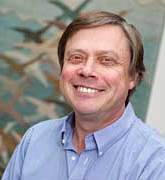
Dr. Robert Howarth of Cornell University is a leading expert on the role of methane leakage as a driver of global warming. He warns that large amounts of methane leaking throughout the natural gas industry is now the top greenhouse gas problem in the US.
Dr. Howarth’s Asheville gas plant affidavit
Methane emissions and climatic warming risk from hydraulic fracturing and shale gas development, Energy and Emission Control Technologies, 2015
Methane: New York’s Dirty Addiction to Shale Gas, press conference, December 2016
‘Bridge’ fuel may escalate atmospheric greenhouse gas, by Blaine Friedlander, Cornell Chronicle, October 12, 2014
Methane: New York’s Dirty Addiction to Shale Gas, video of December 2016 press conference by Howarth and others
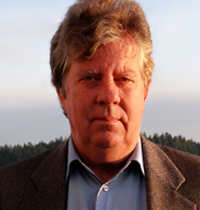
David Hughes is a 32-year veteran of the Geological Survey of Canada and a leading expert on shale gas reserves and production. He has exposed vast and persistent exaggeration of the medium- and long-term production potential of shale gas by the oil and gas industry and US regulators.
Hughes’ Asheville gas plant affidavit
Papers on the problems with natural gas as a “bridge fuel” by David Hughes
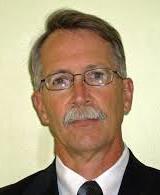
Bill Powers, P.E. has 30 years of experience in electric power generation, with expertise including distributed energy, efficiency programs and other means of avoiding expense and impacts of central fossil fuel power plants.
Powers’ Asheville gas plant affidavit
Bay Area Smart Energy 2020, by Bill Powers, P.E., Powers Engineering, March 2012
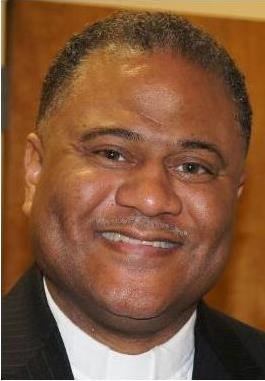
Reverend Rodney S. Sadler, Jr., Ph.D. is an ordained Baptist minister and presently serves as Associate Pastor of Mount Carmel Baptist Church and Associate Professor of Bible at Union Presbyterian Seminary. He currently serves on the Executive Committee of the North Carolina NAACP and has worked organizing clergy with, and developing theological resources for, the Forward Together/Moral Monday Movement in North Carolina.
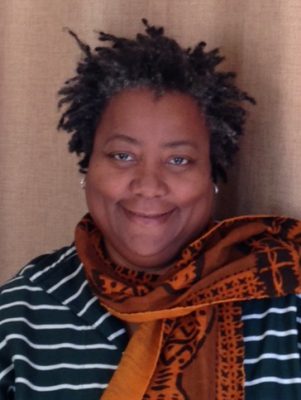
Connie Leeper, organizing director for NC WARN, is a leading voice for climate and energy justice. She has been organizing for social change for 45 years.
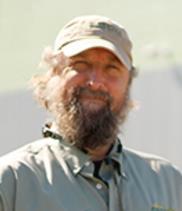
Dave Hollister, President & CEO of Sundance Power Systems. Before founding Sundance he was the Coordinator of Greenpeace USA’s Action Team.
Steve Norris, Ph.D. For years Dr. Steven Norris taught civil rights, nonviolence and environmental justice in the Peace Studies Department at Warren Wilson College, and helped organize and supervised the Environmental Justice crew, which raised environmental issues on campus and involved students in off-campus protests and activism all over the east coast. Partly as a result of inspiration of his students, he went on to become a full-time climate change activist, helping to pull together a nationwide organization, Beyond Extreme Energy.
Photos
-
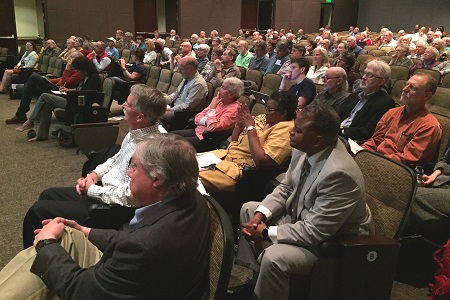
Audience at March 2016 Fracking Gas, Duke Energy & Climate Crisis forum
-

L to R: David Hughes, Rev. Rodney Sadler, Connie Leeper, Robert Howarth and Bill Powers.
-

NC WARN Organizing Director Connie Leeper
-
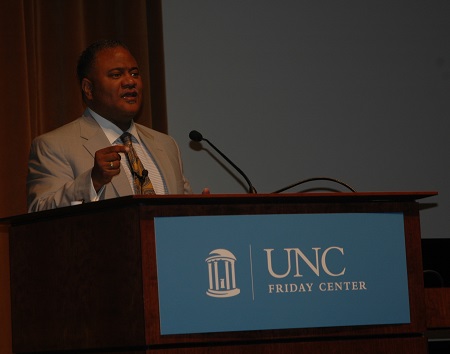
Rev. Dr. Rodney Sadler, Jr. of the NC NAACP
-
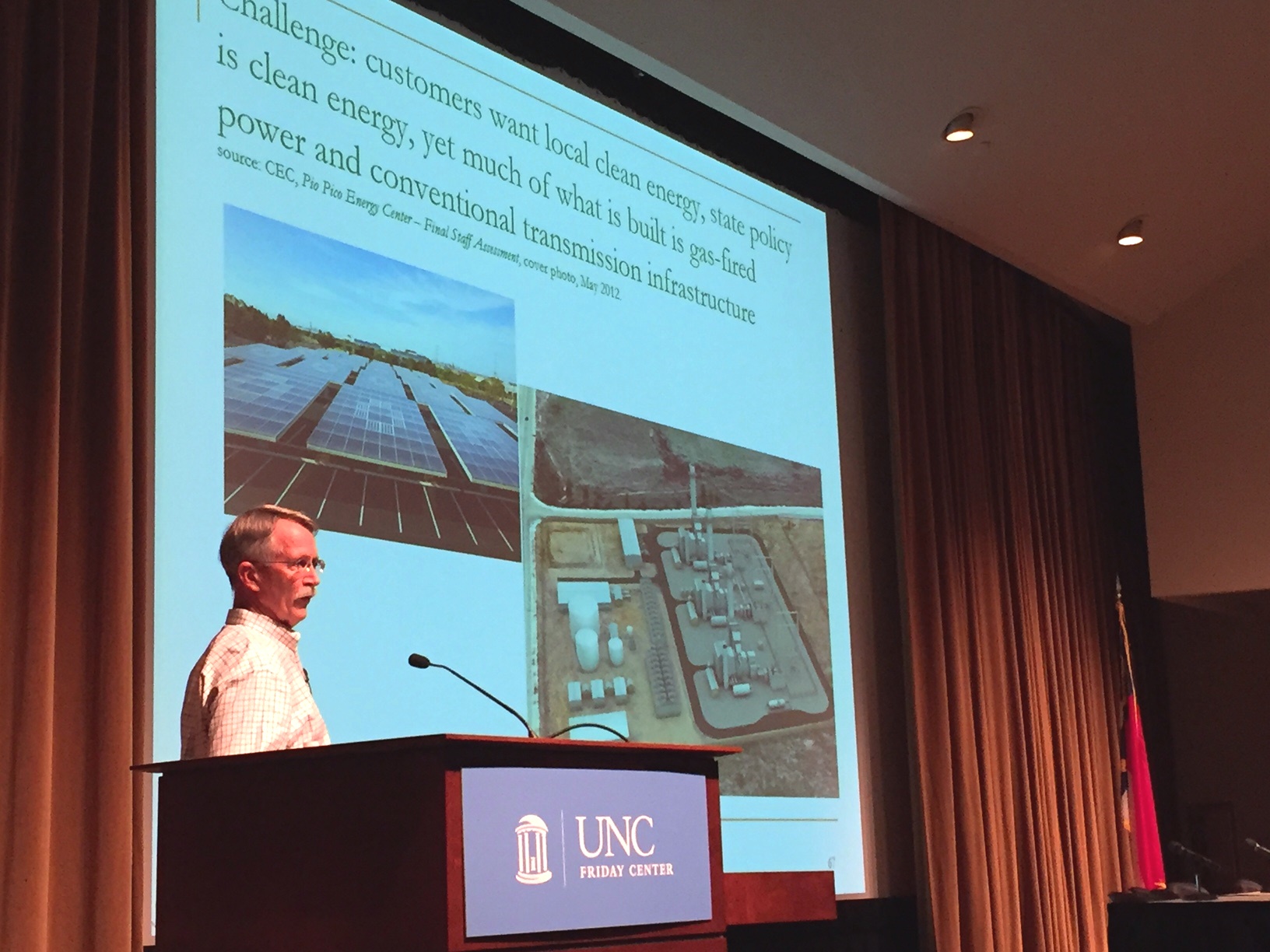
Engineer Bill Powers
-
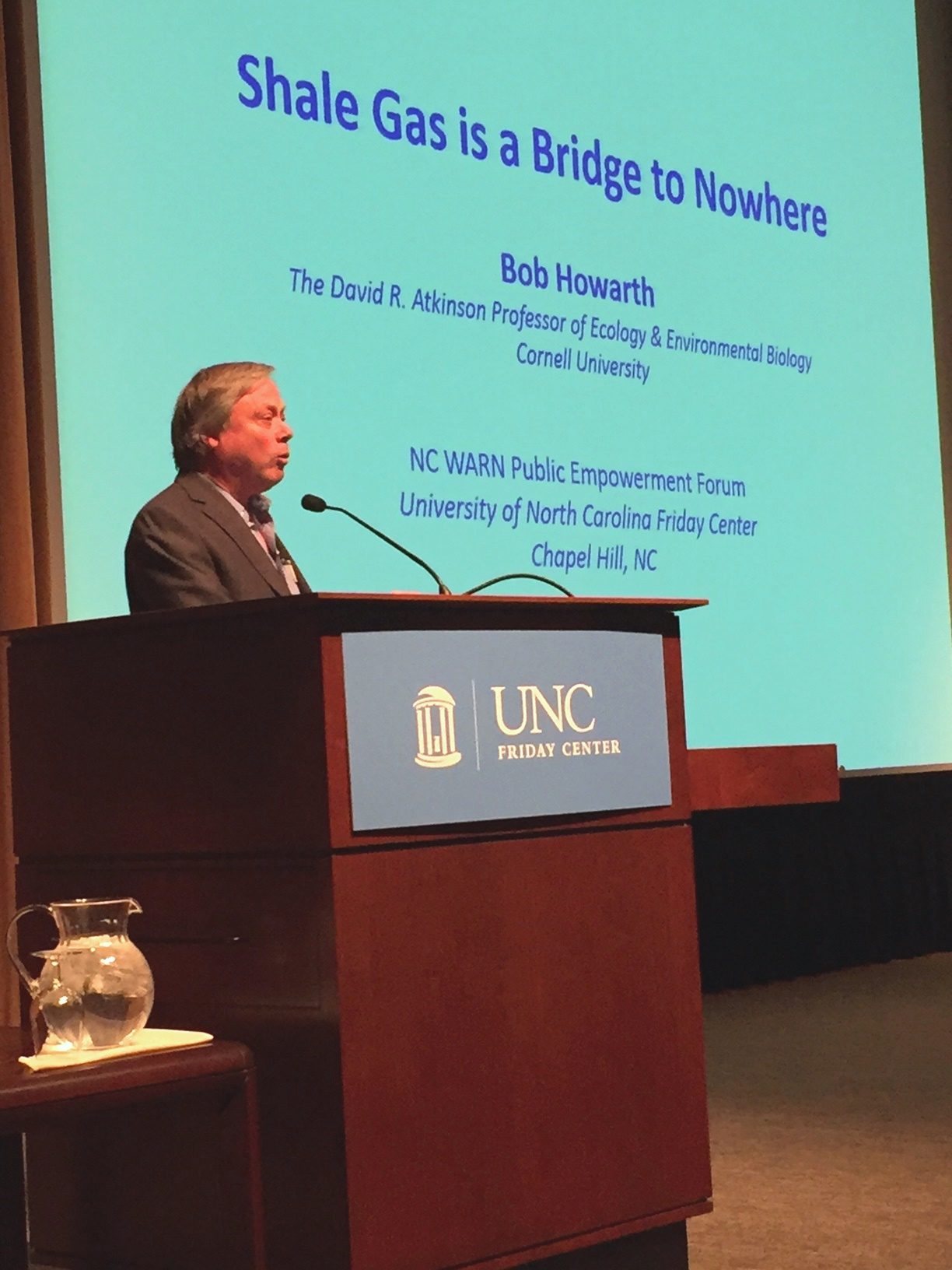
Earth Systems Scientist Dr. Robert Howarth of Cornell
-
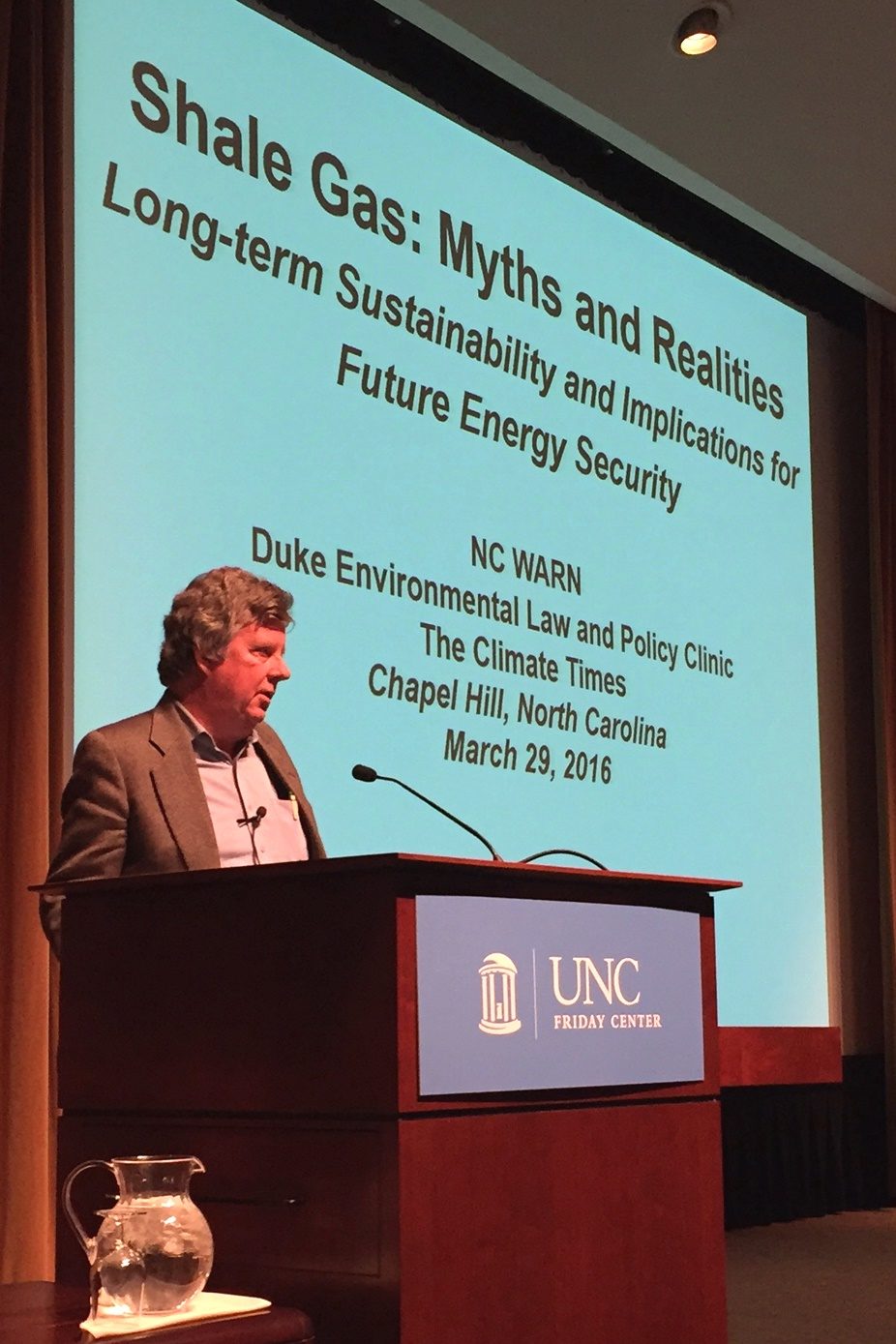
Earth scientist Dave Hughes

